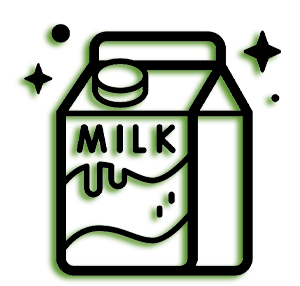
06 Jul IS WHOLE-FAT MILK OKAY FOR WEIGHT LOSS?
US Dietary Guidelines have long recommended that low-fat or non-fat milk is healthiest. However, research suggests that the prevailing opinion about the risks of whole milk may be misguided.
In the Nurses Health Study of Professionals Follow-Up Study, the blood of 3,333 adults consuming either whole-fat or low-fat dairy over 15 years was analyzed. The results showed that those who consumed whole-fat dairy had on average 46 percent lower risk of developing type 2 diabetes. A previous study published in the American Journal of Nutrition reported similar results about the risk of developing obesity, showing that whole-fat dairy consumers reduced their risk of obesity by 8%.
So what’s going on here? Researchers and policymakers originally felt confident in their assertion that avoidance of high-calorie whole milk would help people manage their weight and health. But what they did not anticipate was that the lower fat levels of low-fat and non-fat milk would fail to make people feel full, so they turned to carbohydrate and sugary foods to satisfy their hunger. Of course, too many carbs wind up getting stored as fat in the body, which consequently increases the risk of obesity and type 2 diabetes. In other words, the low-fat/non-fat dairy recommendation may have backfired in our national fight against obesity.
Does this mean that we should be stocking up on whole milk? Well, with anything health-related, it’s never very straightforward. First, the most important message of the research emphasizes that in order to achieve a healthy weight and reduce the risk of disease, we have to be conscious of our eating habits as a whole, and not just focus on one nutrient. In other words, if you consume whole-fat dairy but do not cut down on carbs and sugars, you will not be doing yourself any favors. Second, it is unclear if the studies controlled for people with eating disorders, such as Binge Eating Disorder, or BED. People suffering from BED don’t take their eating cues from whether or not they feel full. It is a real psychological disorder that is more about feeling out of control and using food as the main tool in that struggle.
These recent studies on high-fat vs. low-fat dairy do make a strong case for updating dietary guidelines, but more research is needed before that will change. What is clear is that you should always want to do your own body good, and that is a very personal issue. If you want to lose weight and lower your risk of chronic disease, continue to stay tuned into the research, and consult a medical professional for guidance to increase your chances of living life to its fullest.
